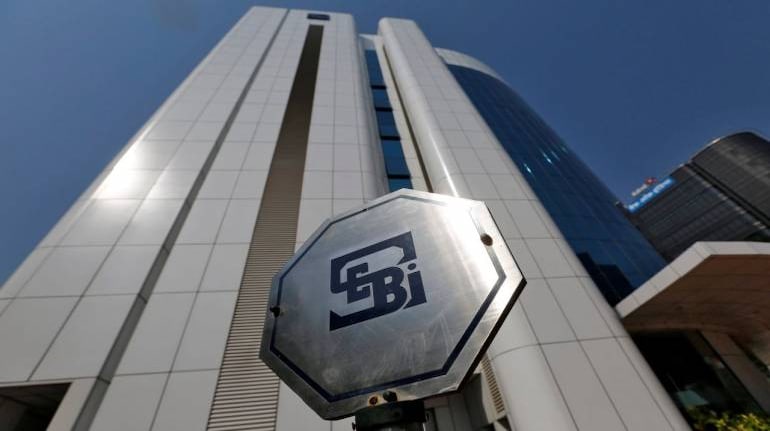



The Securities and Exchange Board of India (SEBI) is mulling tightening the norms of underwriting and has invited comments from the public vis-a-vis the need for setting up a minimum underwriting threshold as far as 'hard underwriting' is concerned.
The proposals, if accepted, will lead to underwriters having more skin in the game, and will demand more 'financial commitment' from them.
Before we proceed with the contents of the consultation paper, it is necessary to delve into a step-by-step movement of the book-building process.
Book building is the process by which an underwriter (usually an investment bank) discerns the price range at which the shares are to be sold in an Initial Public Offer (IPO).
Before a company actually kicks off with its IPO, there is a need to discover the price of the shares. This is done by the investment bank which assesses the issue size, basically the number of shares to be issued, and invites large corporates, domestic and foreign funds and other stakeholders to place their bids for the shares. A floor price, that is, the price below which bids can't be placed and a ceiling price, the price above which bids can't be placed is set. Consequently, "a book" is then built through the evaluation and aggregation of the submitted bids, and a final price is arrived at, which is, termed the cut-off price. After this, shares are allotted to those players whose bids are accepted, and the investment bank publicizes the investment information to the general public to signal that transparency has been maintained throughout the book-building process.
After the book-building process is completed, the investment bankers draft a DRHP (Draft Red Herring Prospectus) and submit it to SEBI for consideration. After SEBI gives its feedback, and the company receives a go-ahead from SEBI, RoC and the stock exchanges, the DRHP become an RHP. Subsequently, an IPO is launched, and retail and other investors are invited to participate in the offer.
Also read: SEBI looks to end practice of 'perpetual board members' at listed companies
The hard and soft underwriting divide
In 1999, SEBI introduced the book-building process in India. This is the very process stated earlier and the underwriters have to mandatorily underwrite the issue after the pricing but prior to the filing of the prospectus.
It is necessary to take a detour here to better understand the complexities undergirding the consultation paper. One needs to understand the difference between hard and soft underwriting. In hard underwriting, the underwriter agrees to buy his commitment of shares before the issue opens. The underwriter guarantees a fixed amount to the issuer. Thus, in case the shares are not subscribed by investors, the issue is devolved on underwriters and they have to bring in the amount by subscribing to the shares. The underwriter bears a risk which is much higher than soft underwriting.
Soft underwriting, on the other hand, is when an underwriter agrees to buy the shares as soon as the pricing process is complete. The underwriter, then, offers the shares to other institutional players, which effectively reduces the risk of the underwriter to a small window.
Currently, the prevailing regulations don't differentiate between hard and soft underwriting.
"Purpose of hard underwriting is to cover subscription risk rather than payment risk." the consultation paper states adding, "Therefore, in case of inadequate demand to the issue, if the issue is not insured by underwriters' financial commitment then in such scenario issue is deemed as a failed issue and the issuer has to refund the application money."
The paper also points out that if an underwriting agreement is entered into after the issue closure to cover the shortfall in demand, the same ought to be disclosed in the RHP. Failing to disclose such an agreement is "not right" to the investors who will be subscribing to the IPO. The paper also mandates that an underwriting agreement should be entered into before the filing of the RHP.
"It is pertinent to note that ‘hard underwriting’ involves determining the risk and price of the proposed security and it gives insurance to the issuer company and the prospective investors also feel confident that the underwriters had evaluated the issue and are backing the issue with the financial commitment. Thus, such agreements for underwriting the under-subscription portion of an issue due to shortfall in demand i.e. ‘hard underwriting' should be entered before the filing of RHP and all underwriting and subscription arrangements made by the lead manager(s) shall be disclosed in the RHP." the consultation paper states.
The paper proposes that any issuer company interested in making a public issue via the book-building process shall prior to the filing of the prospectus enter into an underwriting agreement with the lead managers and syndicate bankers. The said agreement should indicate the maximum number of specified securities the lead managers and bankers shall subscribe to either by themselves or by procuring subscription (at a pre-determined price not less than the issue price).
Discover the latest Business News, Sensex, and Nifty updates. Obtain Personal Finance insights, tax queries, and expert opinions on Moneycontrol or download the Moneycontrol App to stay updated!
Find the best of Al News in one place, specially curated for you every weekend.
Stay on top of the latest tech trends and biggest startup news.